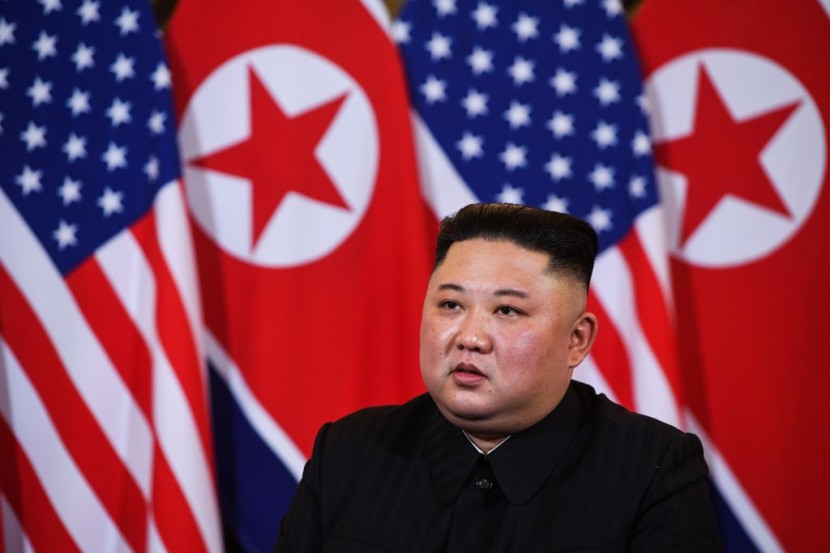
According to state media, North Korean officials have vowed to make a second launch of a military spy satellite, calling the first attempt, which failed last month, their "gravest failure" of the year.
The announcement was made at a meeting of the ruling Worker's Party of Korea between Friday and Sunday, according to the Korean Central News Agency (KCNA) on Monday.
North Korea Calls Botched Launch 'Gravest Failure'
The expanded plenary instructed workers and researchers to analyze the failed launch and "heavily criticized" those in charge of the bungled operation.
North Korea attempted to launch its first military surveillance satellite into orbit on May 31, but the projectile and its payload plummeted into the ocean shortly after launch due to a rocket malfunction, according to Pyongyang. Per Aljazeera, the mishap hampered Kim Jong Un's efforts to acquire a space-based surveillance system to better monitor the United States and South Korea.
Washington and Seoul condemned the launch on May 31 as a violation of United Nations resolutions prohibiting Pyongyang from conducting ballistic missile testing. Analysts assert that the development of intercontinental ballistic missiles and space launch capabilities share significant technological similarities.
The South recovered what appeared to be the rocket's second stage - a new model called Chollima-1 - along with other debris that could provide valuable information on the North's rocket and missile development.
North Korea Spy Satellites
Kim Jong Un did not mention that officials implicated in the failed launch were punished. According to experts, putting reconnaissance satellites into orbit would make North Korea's military more effective and its nuclear arsenal more hazardous.
According to NY Times, Kim has made expanding this arsenal his top priority, despite his efforts to revive his country's faltering economy. The Politburo stated at the party meeting that the North's accelerated development of nuclear and missile programs had created an "insurmountable security crisis" for the United States and its regional allies.
It also revealed flaws, the "most severe" of which was the failed satellite launch. State media reported that officials and scientists were ordered to resolve their technical issues and launch another satellite "in a brief period of time."
Resolutions of the United Nations Security Council prohibit North Korea from launching both ballistic missiles and launchers for its space program. According to the United Nations, testing such rockets helps the North develop the long-range ballistic missiles it intends to equip with nuclear warheads.
Since last year, North Korea has conducted an unusually high number of missile tests, presumably taking advantage of what Kim has termed "a neo-cold war" as tensions between the United States and China escalate and the conflict in Ukraine rages on.
Pyongyang has denied that it has supplied infantry rockets and missiles to Russia for use in Ukraine, as has the White House. In some ways, the increased global polarization has benefited North Korea. In recent months, Russia and China have thwarted American efforts to impose new sanctions on North Korea for its weapons tests at the Security Council.
However, it has also prompted the United States, Japan, and South Korea to increase their military cooperation, citing the need to maintain stability in Northeast Asia and protect against what they refer to as the North's irresponsible behavior.








